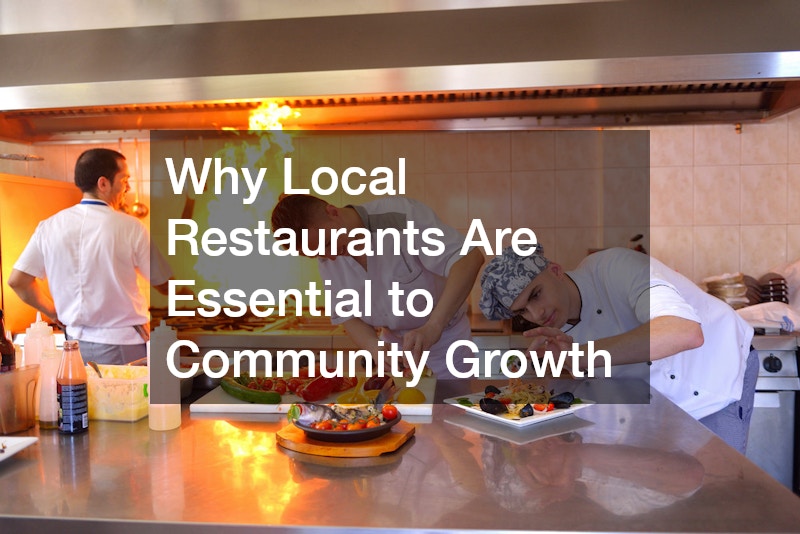
In recent years, there has been growing recognition of the critical role that local restaurants play in fostering community growth. These establishments do more than just provide food; they serve as social, economic, and cultural pillars in towns and cities across the globe. This article will explore various facets of how local restaurants contribute to community dynamics, and why supporting them is integral to sustainable community development.
Video Source
Local restaurants significantly boost the local economy by creating jobs and generating income. For every restaurant opened, numerous positions—from waitstaff to chefs—are created, supporting both employment and skill development. Additionally, these restaurants often source ingredients from local suppliers, effectively circulating money within the community and fortifying the local supply chain.
Moreover, local restaurants are pivotal in attracting tourism, which further enhances local economic prospects. Visitors keen on experiencing authentic, regional cuisines contribute to increased foot traffic in the area, thereby benefiting adjacent businesses such as shops and hotels. This symbiotic relationship amplifies the economic ripple effect driven by these culinary establishments.
Local restaurants are custodians of community culture, often reflecting the area's heritage through their culinary offerings and ambiance. These establishments serve as storytellers, preserving traditional recipes and cooking techniques that might otherwise be lost. Patrons visiting these restaurants can experience an authentic taste of the community's cultural identity through food.
Cultural events hosted by local restaurants, such as food festivals and cooking workshops, also play a significant role in cultural preservation and enrichment. These events engage residents and visitors alike, fostering a deeper appreciation for the culture and traditions unique to the region. By actively participating in these cultural exchanges, local restaurants reinforce community bonds and cultural continuity.
Local restaurants serve as vital social hubs, fostering connections among residents and creating a sense of community. They provide spaces where people can gather, celebrate special occasions, or simply enjoy one another's company over a meal. In this way, local restaurants help bridge social divides by bringing together individuals from diverse backgrounds to share common experiences.
Moreover, these establishments often host community events, such as live music performances or art exhibitions, enhancing local social life and providing platforms for local artists and musicians. By facilitating these interactions, local restaurants strengthen the community fabric, encouraging dialogue and collaboration among residents.
Many local restaurants are champions of sustainability, implementing practices that minimize their environmental impact. By sourcing ingredients locally, these establishments reduce transportation emissions, lower their carbon footprint, and support local agriculture. These practices not only contribute to environmental conservation but also ensure the freshness and quality of the food served.
In their commitment to sustainability, local restaurants often employ eco-friendly techniques, such as reducing food waste, composting, and using biodegradable packaging. By adopting these practices, they set standards for environmental responsibility that can inspire other businesses and consumers within the community to follow suit.
Additionally, some local restaurants incorporate sustainable design principles into their establishments, using energy-efficient equipment and recycled materials in their decor. These efforts reflect a commitment to sustainable growth and demonstrate how businesses can thrive while prioritizing environmental stewardship.
One of the primary challenges local restaurants face is competition from large chain restaurants, which often have more resources and brand recognition. To combat this, local restaurants must focus on offering unique dining experiences and personalized service that larger chains cannot replicate. Developing a strong community presence and leveraging social media can help them build loyal customer bases.
Financial constraints also pose significant hurdles for local restaurants, particularly for startups and family-run businesses. Fluctuations in costs for raw materials, labor, and rent can strain their limited resources. Community support through patronage and financial backing, whether through initiatives like local dining weeks or community-funded projects, can provide much-needed assistance.
Local restaurants are more than just places to eat; they are vibrant centers of economic activity, cultural richness, social interaction, and environmental sustainability. By understanding and supporting these vital community anchors, we can ensure the continued growth and vitality of our local neighborhoods. Through collective community efforts and appreciation, local restaurants can thrive and continue to contribute significantly to the overall development of the areas they serve.
.